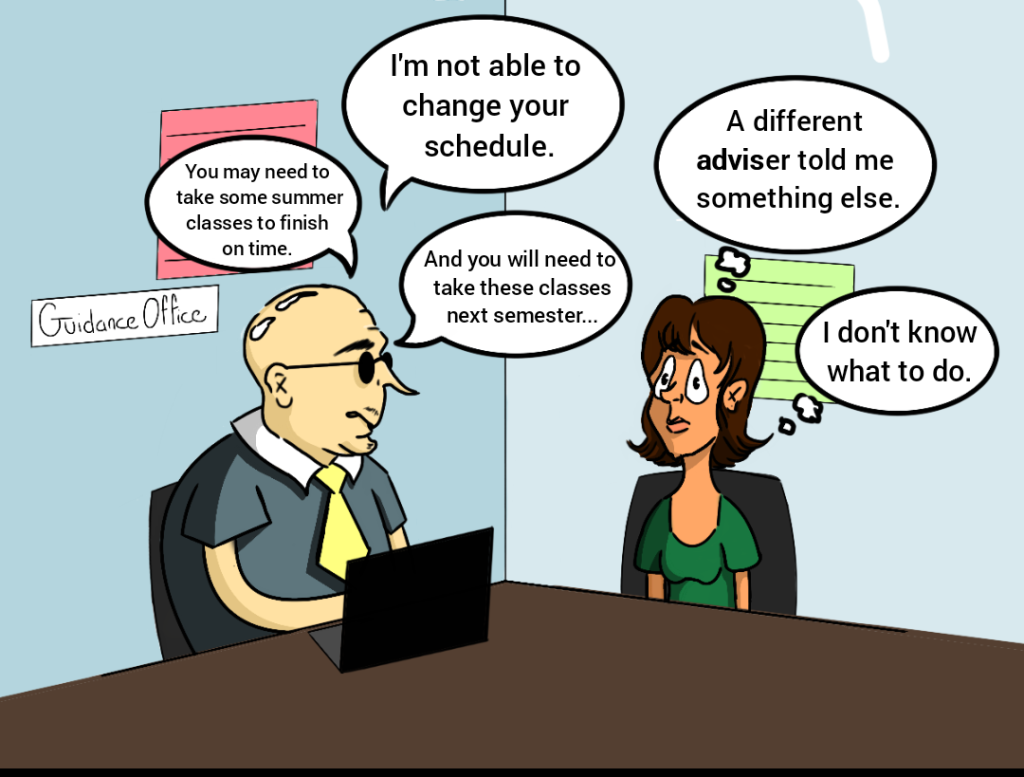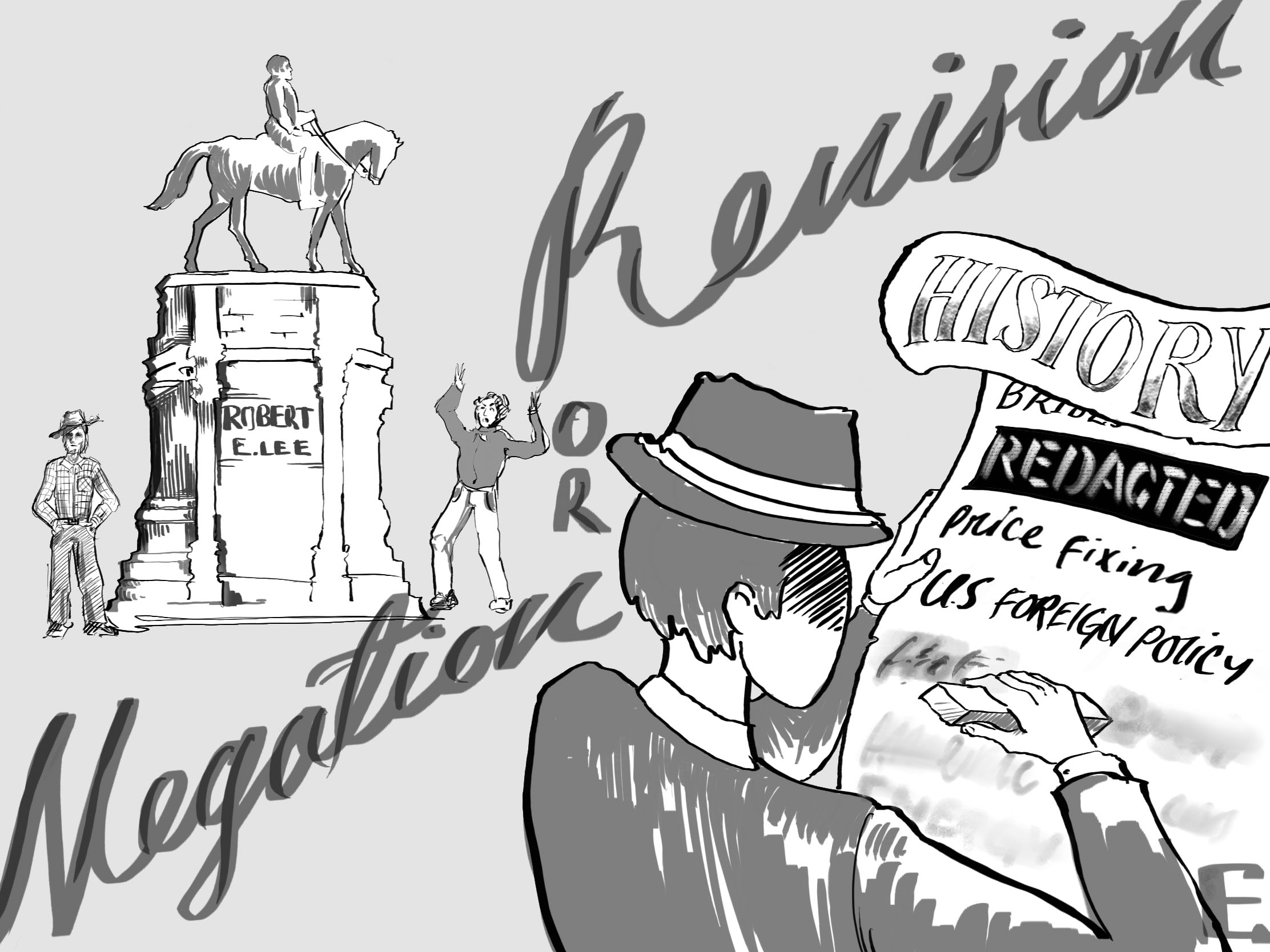Beginning or returning to college can be a nerve-wracking experience. The idea is that college advisers are available to assist throughout the whole process and provide advice on which courses a student should and should not take. This idea can be misleading, especially when you get further into your degree plan and find yourself having to take different classes because the classes previously taken don’t fit into your major.
When it comes to registering for courses, incorrect information is a significant challenge that discourages students about college.
At the start of our academic careers, the advising meetings we attend may seem overwhelming due to lack of knowledge and experience. School academic advisers, part of the Major Advising Program, have hundreds of students with whom they must review the next semester and give counsel. As a result of miscommunication between MAP and department faculty advisers, students may obtain incorrect information on the courses they must take to complete their degree.
This miscommunication occurs when students get deeper into their major and start receiving advising from department advisers.
MAP advisers are there to give us the most generic classes for our degree. The problem arises when students don’t ask who the professor is and get placed into a class that is not a good fit for them. As a result, students must drop or remain in the class. While this has been and will remain a problem as long as people attend college, there are many online resources to check professor ratings.
Since the majority of college students are adults, it is important for us to ensure that we ask the appropriate questions. To validate the information we receive, we must contact several instructors and students. If a slight misunderstanding arises, we must explore the WebDMC website to find the correct resource to find our personalized degree plan and search the course list for classes and professors. While this is difficult it can be achieved through trial and error.
If applicable, we feel that the institution should be able to build a more effective communication strategy as part of a revamped WebDMC system, as well as update an internet-based degree plan verification system.
The institution’s current registration procedure may appear simple. However, a significant number of students do not know how to correctly understand or navigate the WebDMC page. Better communication between department faculty advisers and MAP would make the registration process concise and underwhelming.
Another option to aid students in choosing professors that fit their learning needs would be to make available the professor evaluations students complete at the end of each semester. This small change could allow students to become more self-sufficient to allow for better attendance and success. This would also allow a more substantial rating rather than the extreme side of ratings on Rate My Professor.
Misdirected communication is the root of the problem at hand. This might prevent a student from graduating or transferring.
Ultimately, this is our future, and although we can blame others for receiving incorrect information, it is our responsibility as students to ensure we ask the correct questions.





